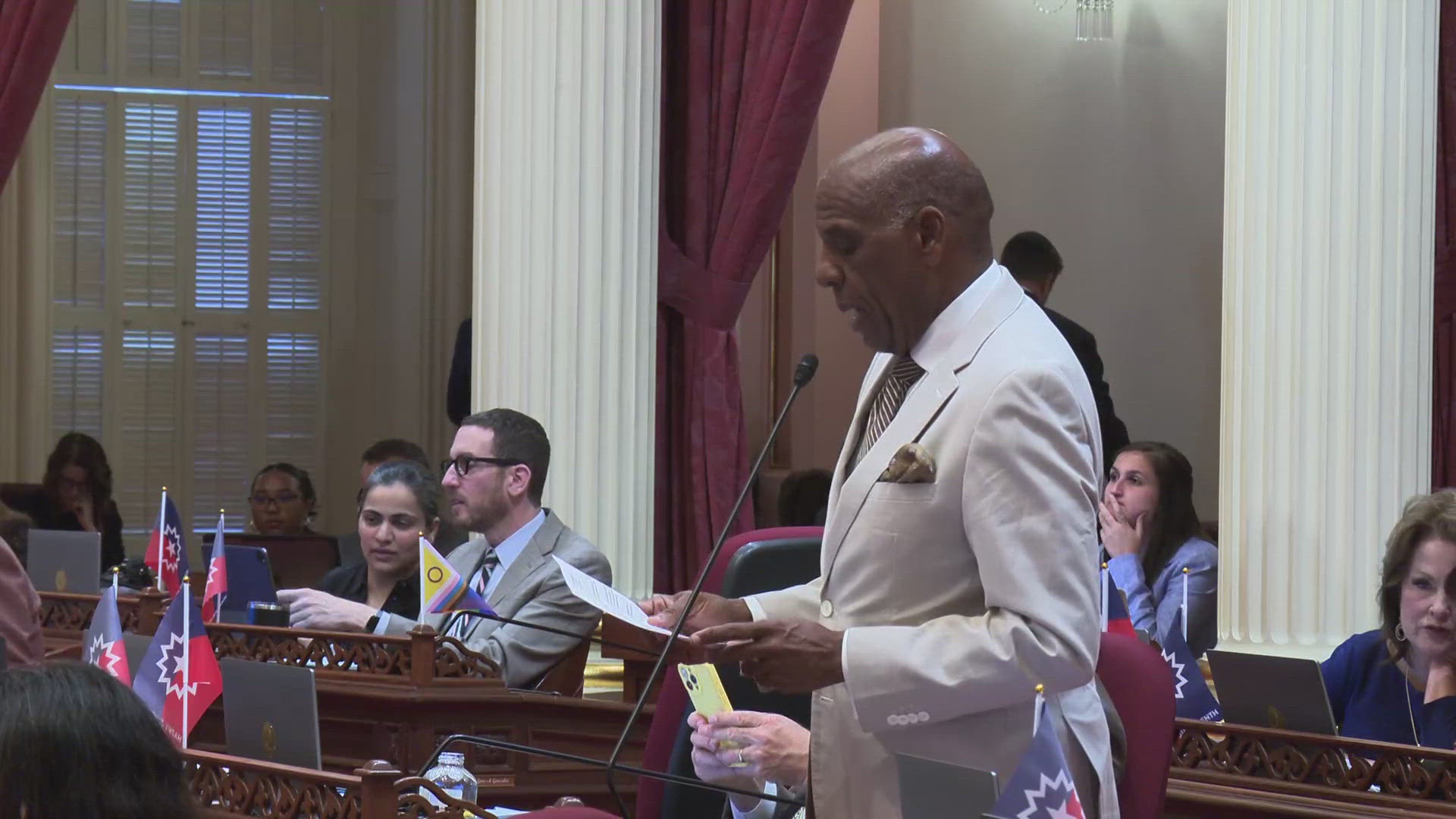SACRAMENTO, Calif. — The fate of hundreds of bills in the California legislature was decided on in a fast-paced, auction-style manner Thursday.
The process, known as the Suspense file hearing, is a biannual event where the Appropriations committees of both houses rule if fiscal bills will move forward or are held at the desk.
Bills sent to the suspense file have to meet a certain fiscal impact. Bills that either have a $50,000 cost to the state’s General Fund or at least $150,000 from a special fund are sent to suspense.
Unlike a typical committee hearing, the suspense hearing allows no public comment. The chair of the committee will read out the bill name and a vote.
According to McGeorge School of Law professor and capitol insider Chris Micheli, both the Assembly and the Senate held a higher number of bills than usual Thursday.
About 34% of the bills were held in the Senate and 32% were held in the Assembly. Micheli said on a typical year both houses hold about 25% of bills.
“The legislature took a tougher line with bills that had a fiscal impact… both houses were cognizant of the state’s budget," he said.
Here's some of what survived:
A major focus is the implementation of AI. Several bills focused on creating a smooth transition with the new technology passed through suspense, including a landmark piece of legislation by San Francisco Sen. Scott Wiener. SB 1047 would create a state agency to monitor the implementation of AI. It would also would require the developers of large-scale AI programs to meet certain safety requirements
AB 3216 by Folsom Assemblymember Josh Hoover survived. This bill would make school districts create policies to limit or ban the use of cell phones in schools. Governor Gavin Newsom recently issued a similar order for school districts to limit cell phone use.
SB 1403 by Sen. Steven Bradford survived. This bill would establish the California American Freedmen Affairs Agency. This agency would be responsible for overseeing the distribution of reparations for the descendants of enslaved people. This bill is part of the California Legislative Black Caucus’ Reparations bill package.
“The legislature is clearly sending the message that reparations are due, despite the potential cost,” Micheli said.
As the November election approaches, several bills focused on protecting election integrity passed out of Appropriations, including AB 2655 by Assemblymember Marc Berman, which requires large social media platforms to block deceptive content related to elections.
SB 1414 by Senator Shannon Grove moved forward. Her bill increases penalties for those who are found guilty of purchasing a minor for sex. This bill builds off her legislation from last year which increased penalties for sellers. Grove's bill would make solicitation of a minor punishable as a felony. She wants this to apply to someone soliciting sex with anyone under the age of 18, but this spring, Democratic senators changed it to 15 and under, saying it was otherwise overly broad.
Here's some of what didn't survive:
State Senator Marie Alvarado-Gil had seven of nine bills held at the desk Thursday. It comes on the heels of her switching party affiliations from Democrat to Republican, and it also follows Democratic leadership's decision to strip Alvarado-Gil of all her committee assignments.
“I think it’s likely she was hampered by [switching party affiliations],” Micheli said.
Republican Senate Minority leader Brian Jones’ SAFE Act bill was killed in appropriations. The SAFE Act would have required the State Department of State Hospitals to consider public safety when placing sexually-violent predators in a community.
Supporters of expanding broadband in California will have to wait another year as SB 424 was held in committee. Authored by Sen. Maria Elena Durazo, this bill would have connected almost all Californians to broadband services.
Micheli says the high cost requirements are likely what led to SB 424 being held. He says any large-scale broadband projects will likely have to be a part of the budget process.
The Senate decided on 515 Assembly bills, while the Assembly decided on 313 Senate bills, according to Micheli.
The bills will now have to go through a couple more votes before they can land on Governor Newsom’s desk.
The last day of the legislative session is August 31. Governor Newsom will have until Sept. 30 to sign bills into law.
WATCH MORE ON ABC10: Big Tech political ad warns local news is 'under siege,' opposes California bill



















